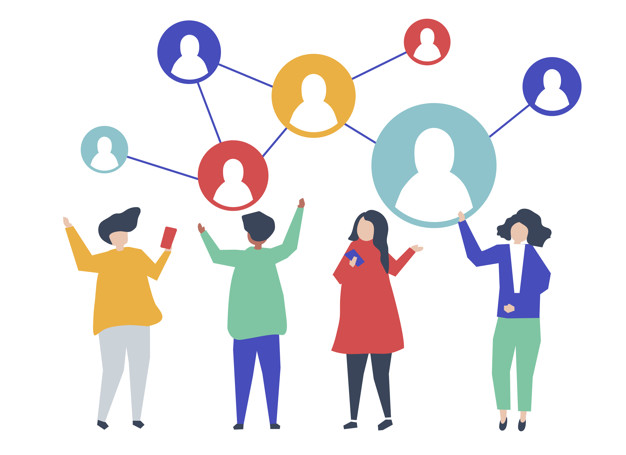Whenever we react to posts, or make comments on social media, it’s usually down to one or both of the following:
- We want to maintain relationships and show support
- We want to create some sort of reciprocity effect. Because others have liked our posts in the past, we feel obliged to do the same.
Through these actions, we hope to build online relationships — which sometimes translates to being seen and recognized.
Authors Etienne Pelaprat and Barry Brown put it this way: “reciprocal recognition is the social mechanism by which we draw others into a social relation and are drawn into social relations by others”.
This act of reciprocity is what fuels most of our online interactions. I was told that in order to increase my engagement on LinkedIn, I needed to interact with other people’s posts.
The undertone was that, when I interact with other people’s posts, they’ll feel more inclined to interact with mine. Reciprocity! That’s how it works, not the algorithm.
Some months ago, I made a conscious effort to become more aware of my usage of social media — especially how I engage with posts.
The result was awesome, and I’d like to share them with you. Take a read:
What I’ve Learned… So far.
Better judgement. I wanted to be my own person online. When I react to a post, I want it to be because it carries real value and not simply because I know the author.
My consciousness to this enabled me to put the value of a post above that of the author.
Whether the post was written by an influencer or a family member didn’t matter anymore. If it didn’t pass my value-test, I’ll skip it to the next interesting post.
This is brutal, but yet, one of the most effective methods of asserting some form of control online.
Zero feeling of guilt. There’s usually a feeling of guilt I often experience whenever I fail to react to a friend or family member’s post. I’ll feel like I’ve let them down.
But is this really healthy? Why should I feel bad because I skipped a post that clearly holds no value?
Practicing selective interaction helped me develop thick skin in this aspect. I decide what I give my time to and the posts I interact with online.
The next time you come across a post from your friends or favourite influencer, pause and ask yourself:
- Why am I interacting with this post?
- Does this add value to me?
Quality interaction. Because I spend more time now reading each post, my engagement rate has improved significantly.
Being intentional about the posts I engage with prevents me from going on a mindless liking spree. The upside is that I get to connect with those whose posts add value to me.
Similarly, I believe that I have better quality of connections who followed me because they saw value in the content I shared.
Read also: 3 words of affirmation for the new week
Conclusion
Practicing selective interaction can be empowering because it makes you mindful of the content you choose to consume online and the people you choose to interact with.
Selective interaction is based on value-addition, but it can also take different forms.
Lastly, our observations may not be the same, but the end result of this practice will be beneficial to you and your mental health.

